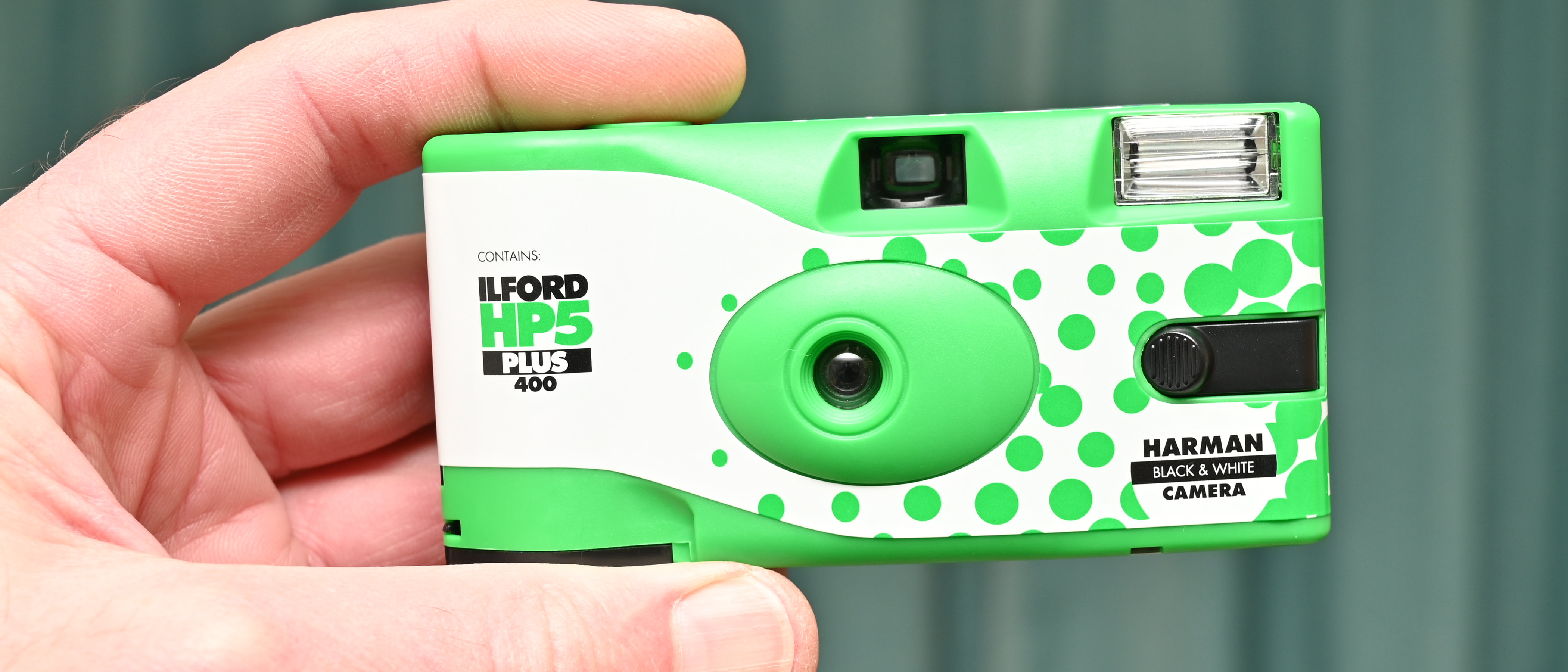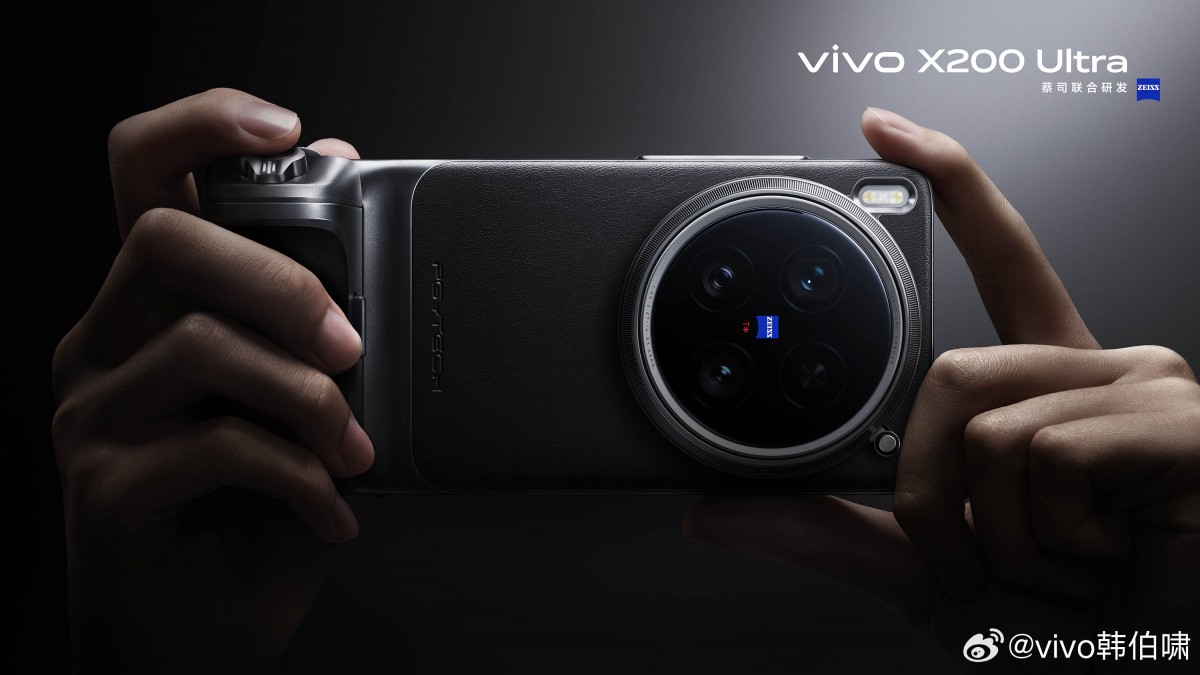Digital Camera World Verdict
The Harman Ilford HP5 Plus B&W Single Use Camera is small enough to fit in my coat pocket and weighs next to nothing. It’s cheap to buy, which is just as well, as you can only use it once. I found it dead easy to use but image quality average at best.
Pros
- +
Preloaded 27 exposure film
- +
Small, lightweight and simple
- +
Process paid in some regions
Cons
- -
Landfill fodder
- -
Fixed focus & exposure
Why you can trust Digital Camera World
I say this tongue in cheek but photography can be a chore. There’s all that faffing around with focusing, exposure settings, charging up batteries and loading memory cards or film. There’s none of that with this single use film camera. It comes preloaded with a roll of 27-exposure Ilford HP5 Plus black & white film, ISO 400, and a battery to power its flash. I found the hardest thing was getting the camera out of its retail carton, and that was very easy.
I like that there’s nothing to think about except taking photos. The camera has a fixed-focus lens with a natural focal length of 30mm and an aperture of f/9.5. The combination gives sufficient depth of field to retain sharpness from 1m to infinity. The shutter speed is also fixed at 1/100th of a second, so you’re relying on the latitude of the film to cover different lighting conditions. For shooting indoors or under low lighting, the built-in flash has a range of about 3m. All I have to do is press the shutter button to take a picture, then wind the crank to advance the film.
Specifications
| Camera type | 35mm single-use |
| Film type supplied | Ilford HP5 Plus ISO 400 |
| Color / B&W | B&W |
| Film length supplied | 1x 27 exposures |
| Flash | Yes |
| Minimum subject distance | 1m |
| Dimensions (W x H x D): | 110 x 54 x 32mm |
| Weight (inc film & battery): | 120g |
Price & Availability
The camera is widely available around the world and, for the sake of comparison, we’ve seen it retailing for around $15 in the USA. It's either £15 or £34 in the UK. That’s quite a disparity. The difference is that the pricier version in the UK includes processing and comes complete with a mailing bag for sending to an Ilford lab.
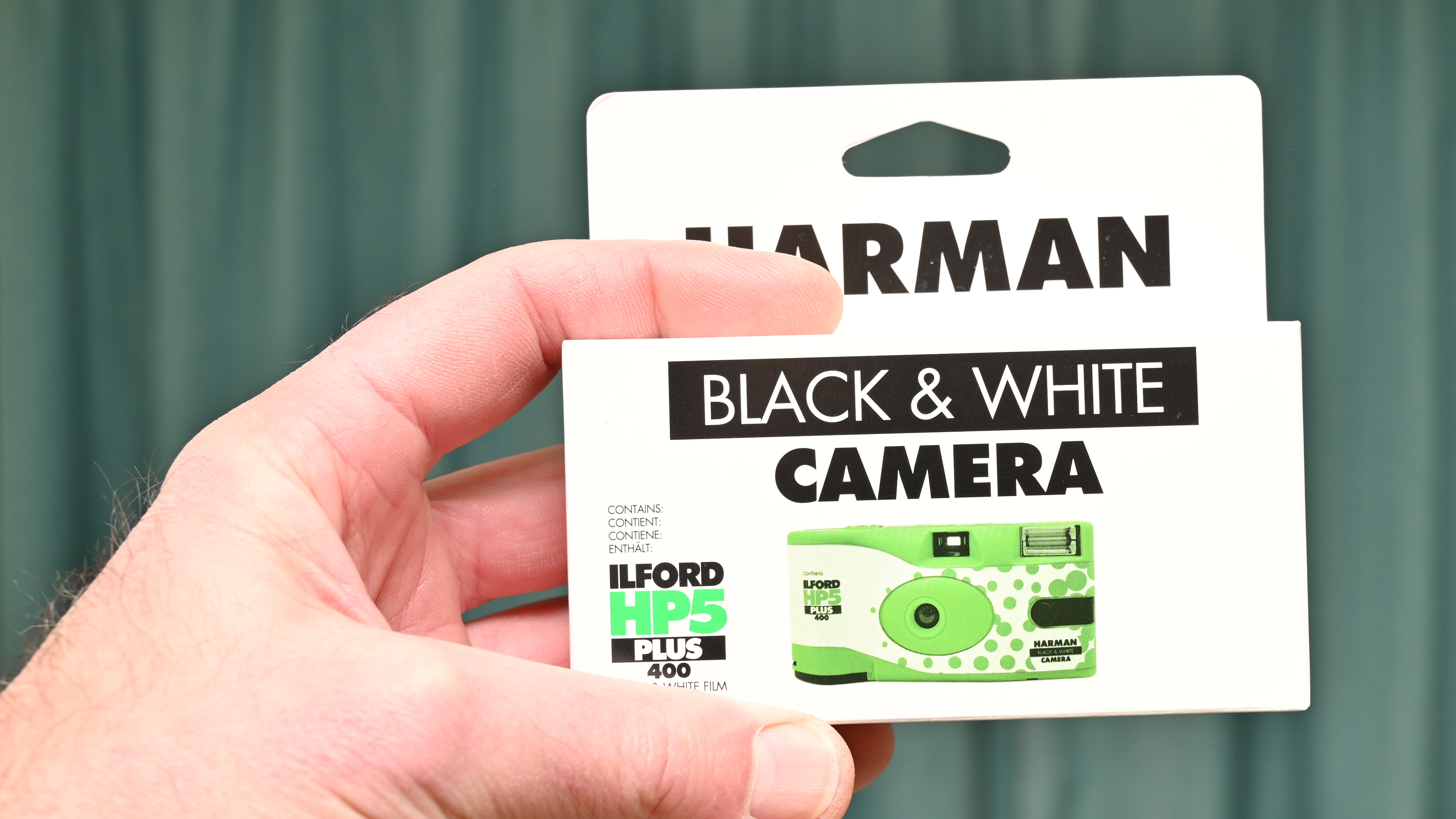
Design & Handling
In typical single-use camera style, the film is fully wound out to the end of the roll when it is pre-installed in the camera. Each time you take a shot and wind the film on for the next frame, it winds back into the cassette. I find that quite handy as, if you shoot the whole reel, the film is already wound back into the cassette ready for development.
I feel that any single-use camera should be designed as a bit of fun, rather than a serious technical exercise. This one certainly keeps things simple, avoiding that relatively tricky business of loading the film in the first place. All you need to do is put your eye to the viewfinder, compose the shot, and press the button. Although the minimum distance for the fixed focus lens is stated as 1m, Harman recommends a shooting distance of 2m or 6ft for taking portraits.
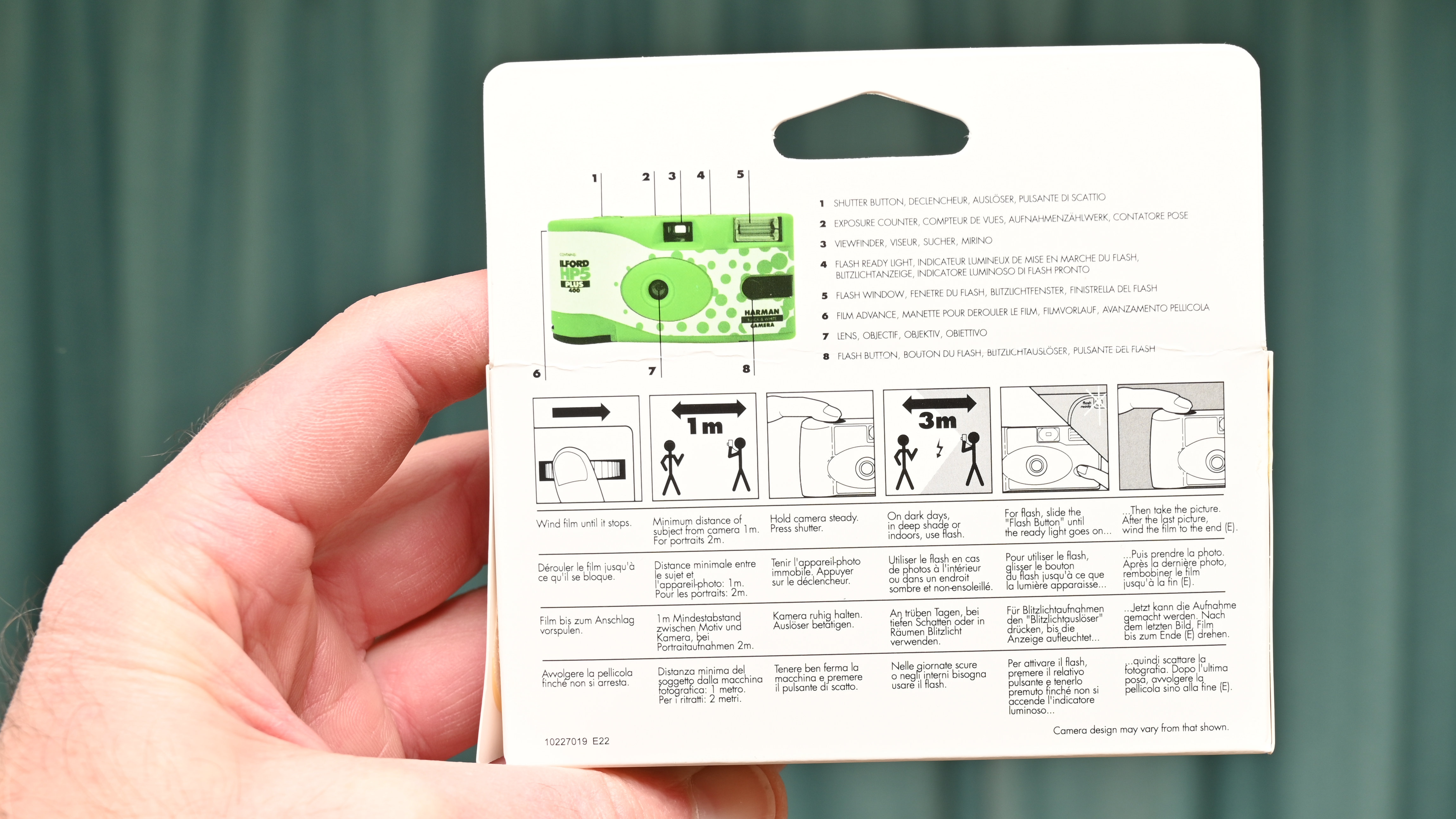
Once the shot is taken, I found the film advance wheel easy to use and it comes to a reassuring click, with an interlocking mechanism that avoids the risk of double-exposures or winding the film too far for the next frame.
For indoor shooting or when light is low, there’s a simple sliding switch to turn on the flash. I found a bit of forward planning necessary, as the flash circuitry takes about 15 seconds to charge up. As a single-use camera, you don’t need to extract the film when you’ve come to the end of the roll. I just dropped off the whole camera at my local processing lab, or you can mail it off in the post.
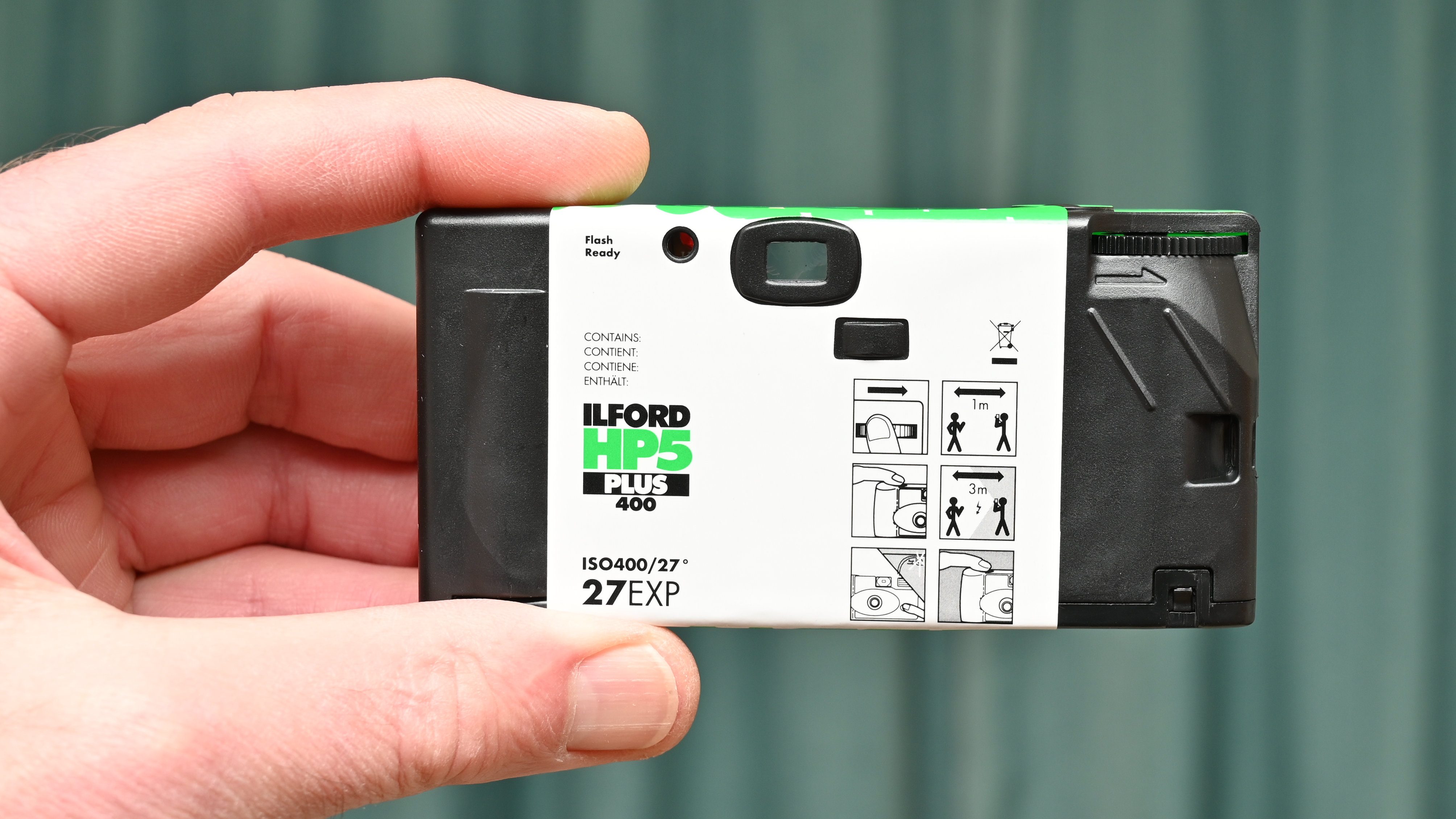
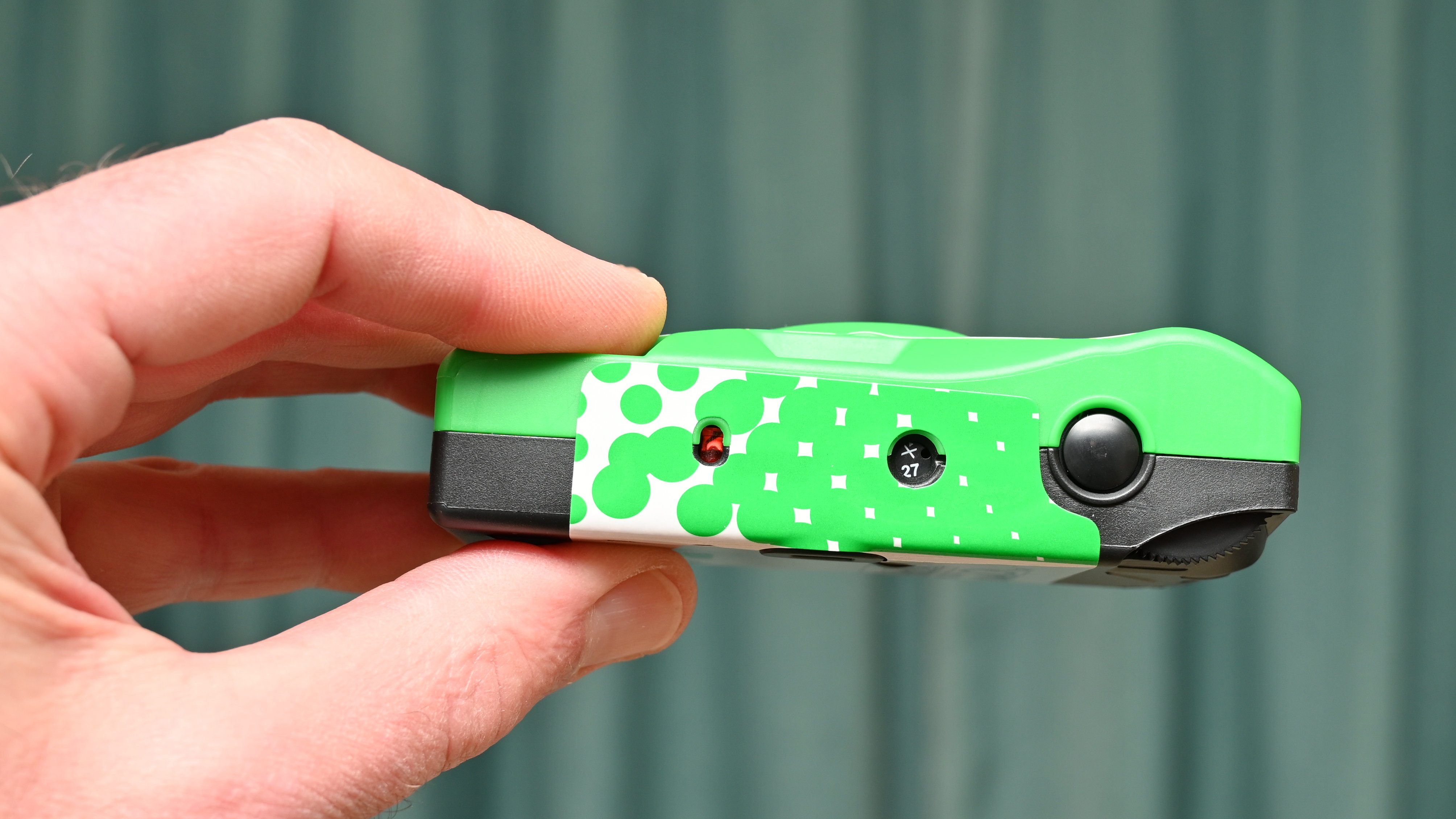
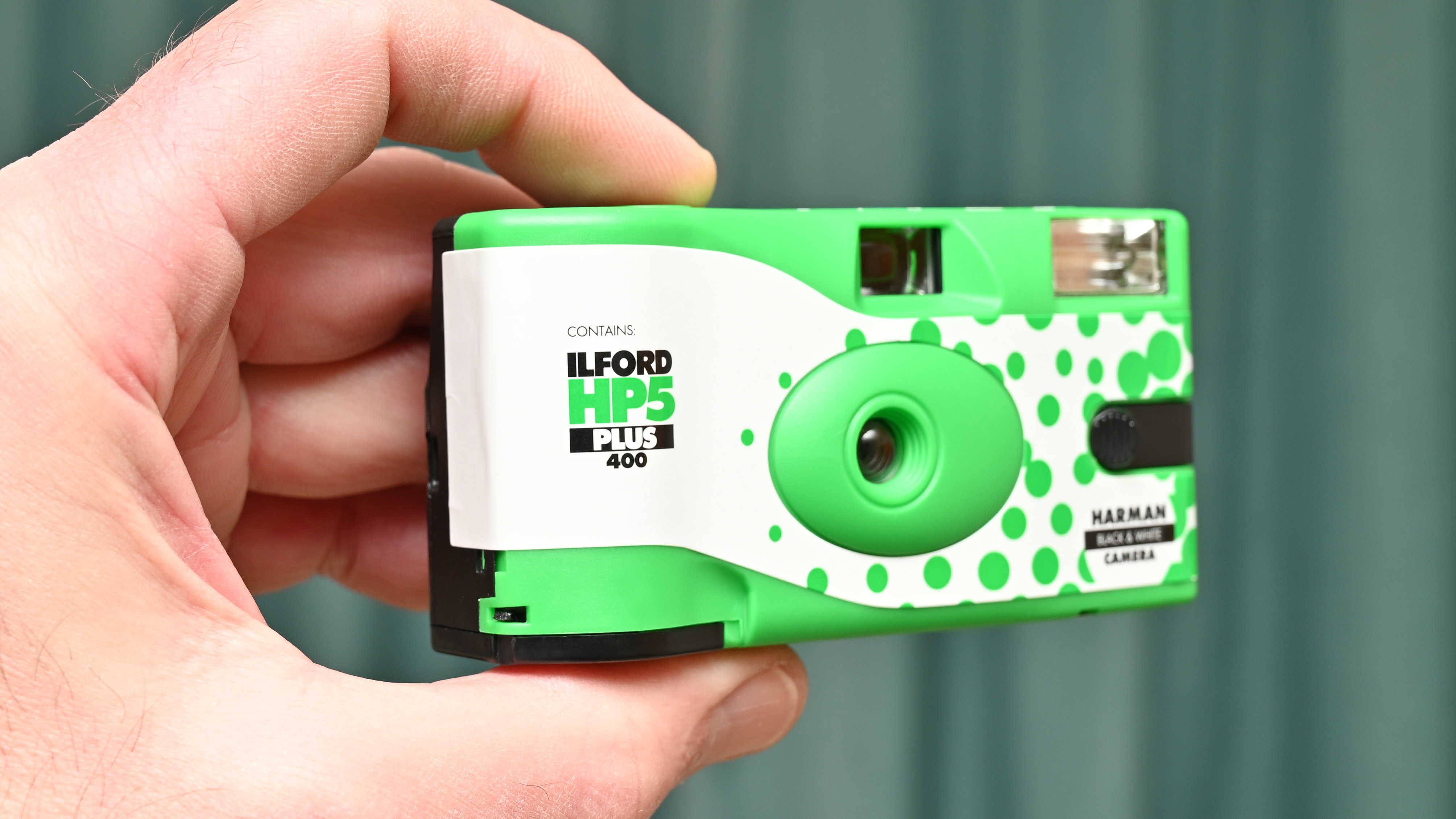
Photo Performance
I’m a big fan of Ilford HP5 Plus black & white film but, as expected, a cheap disposable camera doesn’t do it much justice. I took a range of test shots outdoors in wide-ranging lighting conditions, from direct sunlight to deep shade. I also took some indoor shots with and without flash. The film has a wide exposure latitude so, despite the camera having a fixed exposure setting of 1/100th of a second at f/9.5, I got acceptable results in all outdoor scenarios. However, indoor shots even under fairly bright ambient lighting were very underexposed, apart from short-range shots using the flash. The film has a pleasant grain that I like but the single-element lens lacks any real sharpness or bite.
Sample Images
This gallery of sample shots was taken in varying lighting conditions from bright direct sunlight to deep shade, as well as indoors with and without flash.



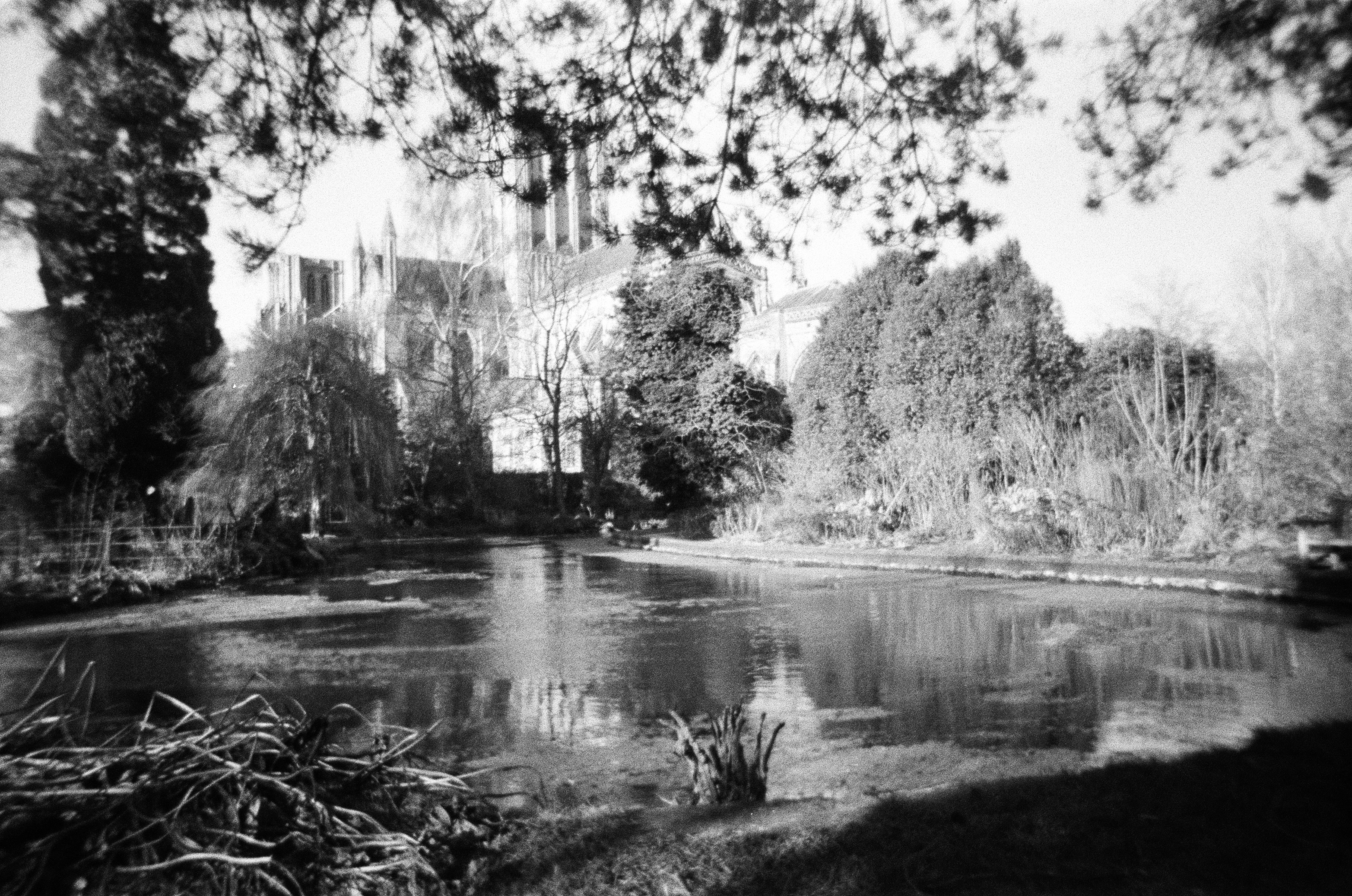
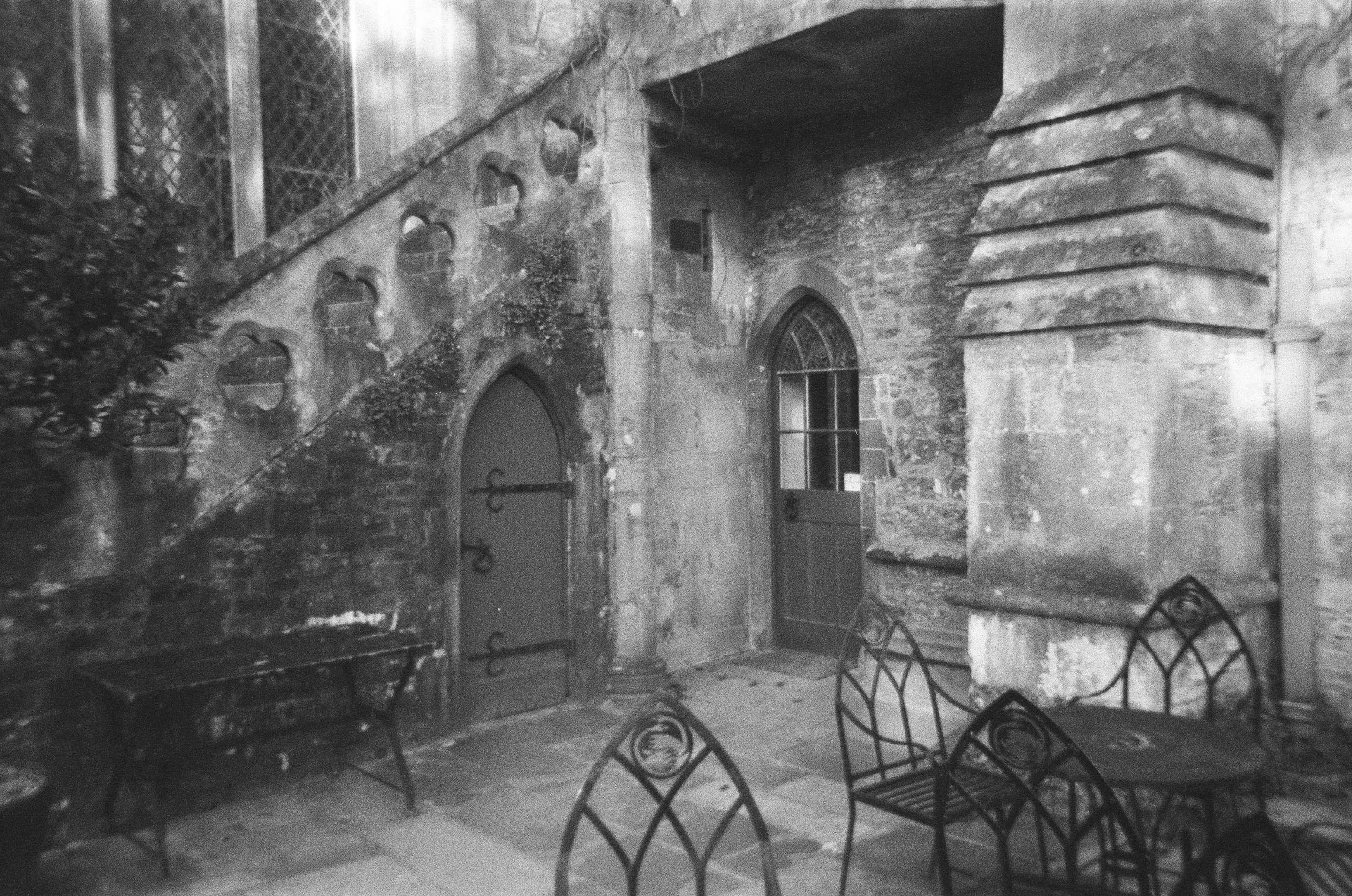

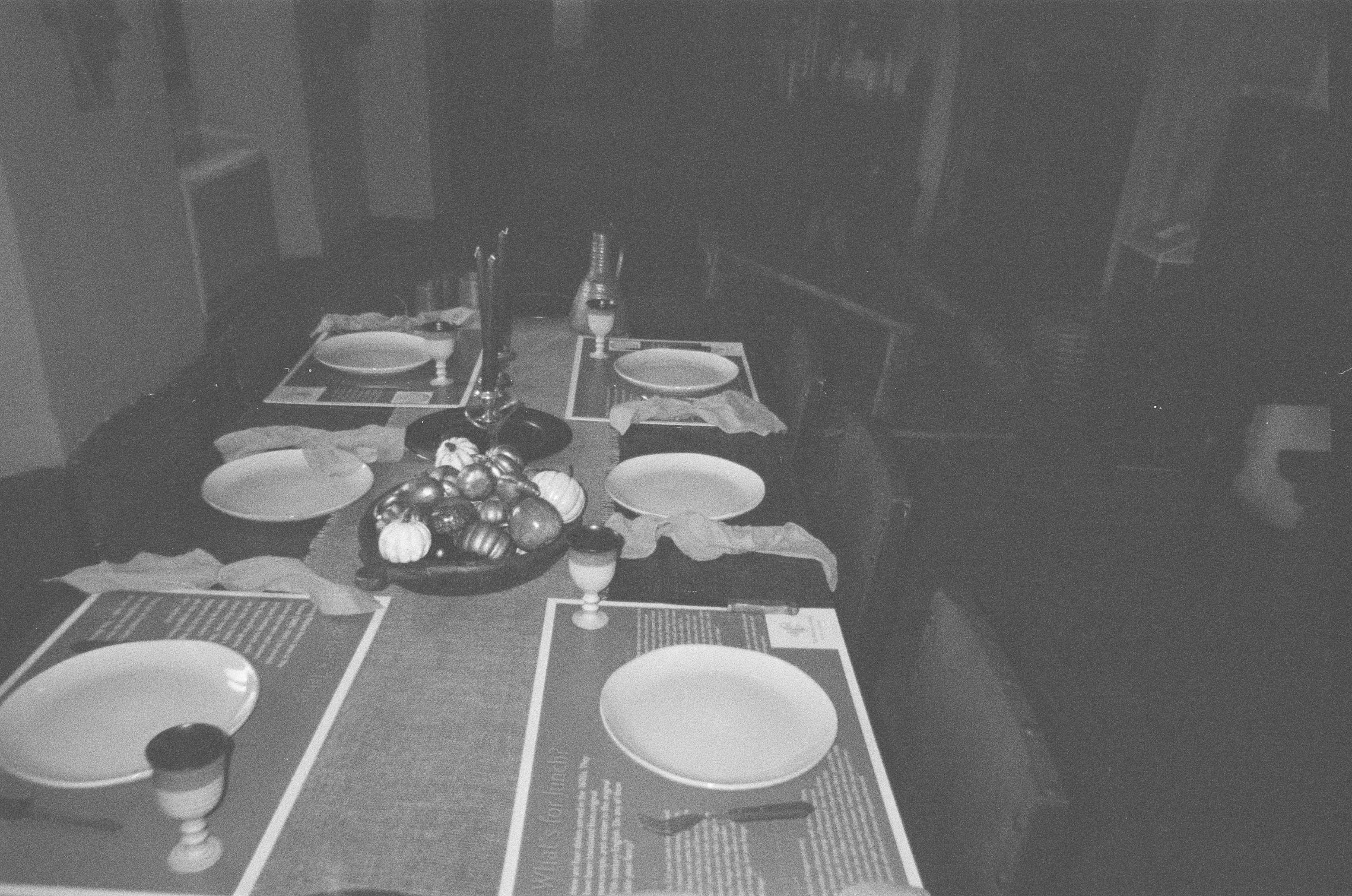
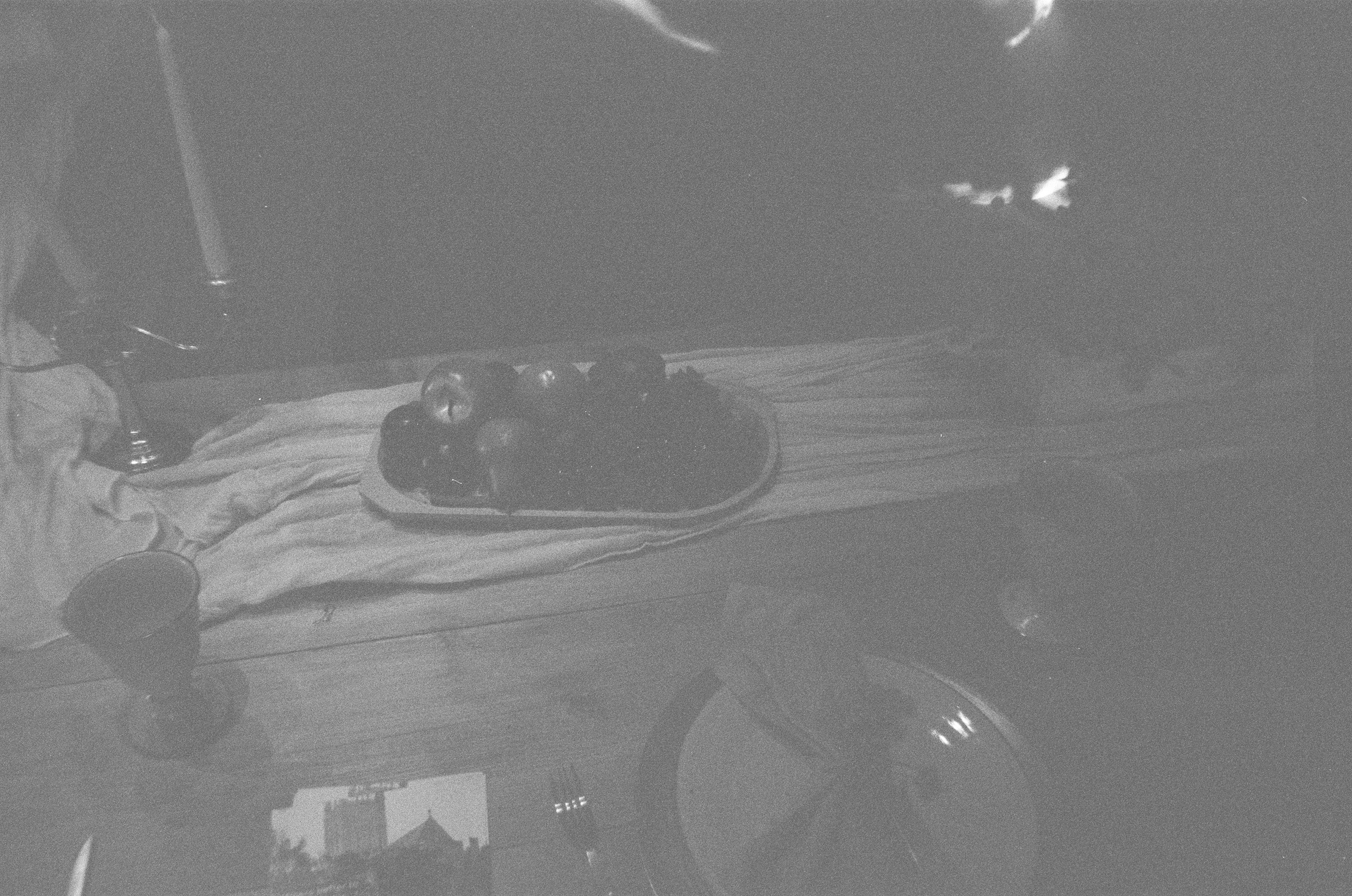
Verdict
For a single-use black & white film camera, the Harman has a very colorful finish. I like its simplicity and that, pre-loaded with film and a battery, I can use it straight out of the box. Ultimately, it’s a bit of fun and capable enough for happy snaps but image quality falls way short of what I’d expect from even a cheap mobile phone nowadays. The camera is more suitable if you’re trying to create an authentic snapshot look from many decades ago.
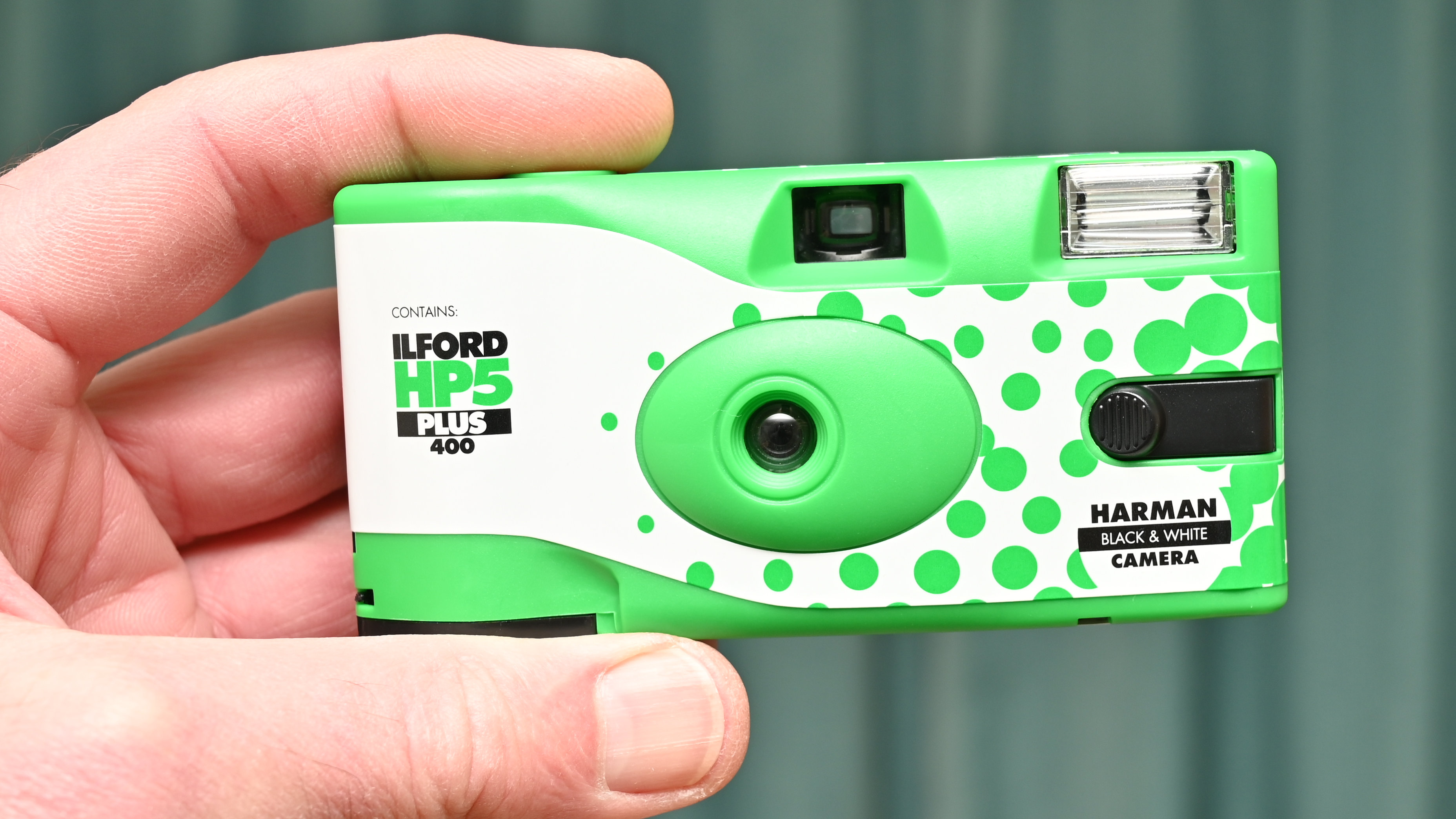
Should you buy the Harman Black & White Single Use Camera?
✅ Buy this...
- Pre-loaded with quality film
- Built-in flash
- Easy to use
🚫 Don't buy this...
- Single-use plastic
- Images lack sharpness
- Pricey film processing
Alternatives
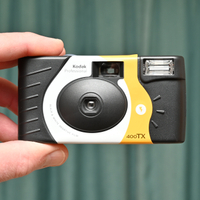
The Kodak Black & White Tri-X 400 Single Use Camera is very similar to the Harman in terms of features, image quality and price, pre-loaded with ‘Kodak Professional’ Tri-X black & white film.
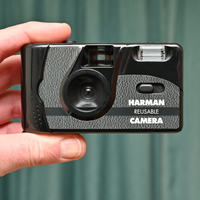
The Harman Reusable 35mm Film Camera can be reloaded instead of being used just once, and comes complete with two rolls of 36-exposure Kentmere Pan ISO 400 black & white film.
Matthew Richards is a photographer and journalist who has spent years using and reviewing all manner of photo gear. He is Digital Camera World's principal lens reviewer – and has tested more primes and zooms than most people have had hot dinners!
His expertise with equipment doesn’t end there, though. He is also an encyclopedia when it comes to all manner of cameras, camera holsters and bags, flashguns, tripods and heads, printers, papers and inks, and just about anything imaging-related.
In an earlier life he was a broadcast engineer at the BBC, as well as a former editor of PC Guide.
